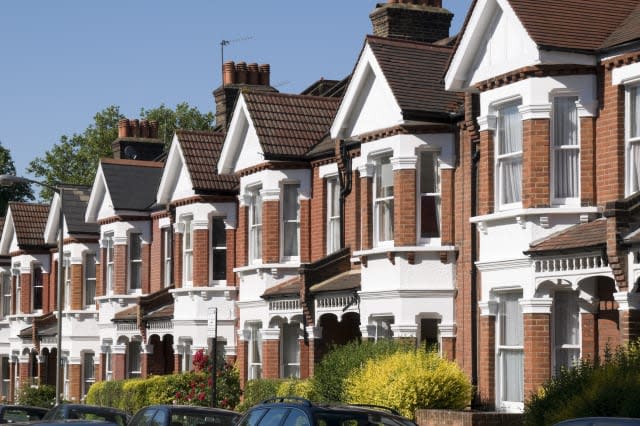2015: the property winners and losers

More and more, buying a house means far more than simply finding a home. For many of us, our property represents a nest egg, allowing us to downsize later on to fund our retirement or help out our children.
For buy-to-let investors, it's a source of income; and for overseas buyers, British property can be a lucrative place to park their cash.
But not all property investments are equal - so who have been the biggest winners and losers of 2015?
Regional price rises
Overall, UK house price inflation looks set to have been 10% over the last year. The latest Hometrack UK Cities House Price Index shows that Oxford experienced the biggest rise over the last year, at 12.8%, followed by London, at 12.0%.
However, large regional cities outside southern England are showing an acceleration in house price rises, with prices in Glasgow, Manchester and Liverpool growing faster than at any time since 2007.
"Improving consumer confidence and low mortgage rates are boosting demand in cities where the recovery in house prices is in its infancy," says Richard Donnell, Hometrack's director of research.
"While southern cities have been in recovery mode for over six years with price gains of up to 70%, the large regional cities have seen far more modest price rises over just the last three years."
The only place to show house price falls was Aberdeen - generally more expensive than other Scottish cities, thanks to its oil industry. But as oil prices have crashed and jobs have been lost, the number of transactions has slowed.
According to Savills, there were 44% fewer sales of houses over £400,000 between May and September this year, with these homes losing 9% of their value.
Buy-to-let landlords
Of course, landlords have benefited from the same price rises as residential owners over the last year - and rental yields have done well too. According to Paragon Mortgages, yields have risen steadily throughout the year, rising from 6.3% to 6.4% over the last three months.
Voids have been down, too, with 40% of landlords saying tenant demand was either 'growing' or 'booming'.
Things don't seem so good for the future, with the maximum amount of tax relief that landlords can claim on mortgage interest set to fall - but right now landlords are sitting pretty.
%VIRTUAL-ArticleSidebar-property-guide%
First-time buyers
With rocketing prices, it's not been a good year for first-time buyers. On the upside, many will benefit from stamp duty changes: people buying a £200,000 house, for example, now pay £500 less.
This small saving, though is more than wiped out by the rise in house prices themselves. The average first home now costs over £215,000, meaning that even with a 10% deposit, buyers need a salary of around £45,000 a year to get a mortgage. In London, it's £77,000.
As Jan Crosby, head of housing at KPMG, says: "Now, unless you earn well above average or receive an inheritance, it is unlikely you will be able to afford to buy, no matter where in the UK you live."
Only one in 10 people aged under 24 can now to afford to buy, compared with one in three in the mid-1980s.
The government's been attempting to appease first time buyers with its Starter Home scheme, which will see low rent housing removed from all new developments in favour of homes that will be sold at 80% of market prices.
However, this still means that London buyers need to earn £76,957 a year, says Shelter. And propping up the market this way does nothing to make properties more affordable.
The wealthy
The strength of the pound and a tightening up of non-domicile status mean it hasn't been such a great year for foreign property investors, who are starting to pull out of the high-end London market.
But despite the fact that million-pound pads now incur more stamp duty - £18,750 more in the case of a £1.5 million house - prices have fallen to compensate, a report from the Nationwide shows. And anyone who did buy a high-end property this year is likely to do well, with Savills predicting that prime London property will rise by 21.5% over the next five years.
Average house price growth: year to Q3 2015 (Source: Hometrack UK Cities House Price Index)
Oxford: £378,800 - up 12.8%
London: £448,200 - up 12.0%
Cambridge: £388,400 - up 10.7%
Bristol: £235,400 - up 9.7%
Glasgow: £110,500 - up 8.3%
Bournemouth: £255,800 - up 7.9%
Leeds: £146,900 - up 7.0%
Manchester: £141,200 - up 7.0%
Southampton: £202,500 - up 6.9%
Edinburgh: £194,900 - up 6.7%
Portsmouth: £201,300 - up 6.4%
Leicester: £149,500 - up 6.3%
Birmingham: £136,500 - up 5.5%
Sheffield: £124,400 - up 5.4%
Nottingham: £131,300 - up 5.3%
Liverpool: £109,900 - up 5.1%
Belfast: £119,400 - up 4.9%
Cardiff: £178,700 - up 3.6%
Newcastle: £120,700 - up 2.6%
Aberdeen: £193,500 - down 0.8%





